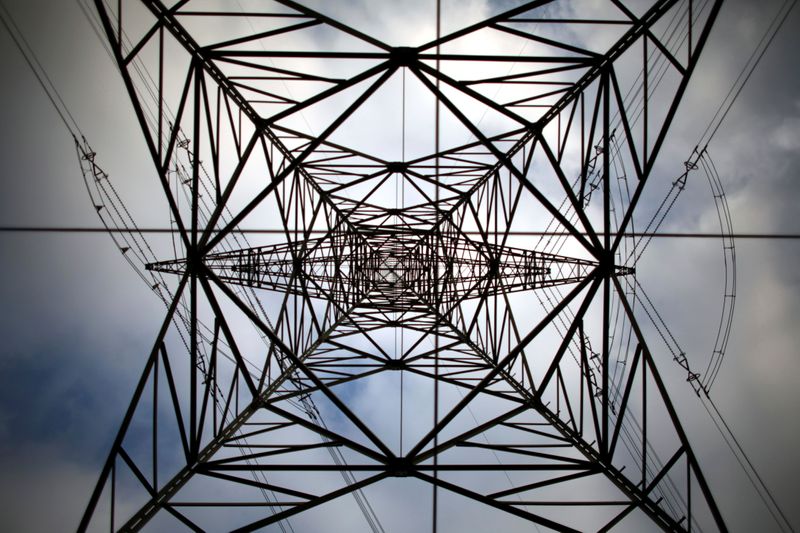FRANKFURT (Reuters) -Germany's federal network agency on Wednesday curbed the permitted return on new infrastructure for power and gas networks in the years to 2029 to protect consumers from higher energy bills.
The move, which the authority said was led by the general interest rate environment, comes as a surge in energy prices has left households facing an expensive winter heating season.
The grid element accounts for just over a fifth of the final bill paid by power consumers, while in gas it is a quarter, industry statistics show.
In its equity interest rates for the networks published on Wednesday, the authority proposed a permitted return for new infrastructure of 5.07%, versus 6.91% now, in the regulated sectors, where costs are recouped through fees levied on prices paid by energy customers.
The new rates will apply in the five-year periods starting 2023 and 2024 respectively. Rates for old infrastructure were set at 3.51%, down from 5.12%, the agency said in a statement.
The agency said it had been mindful of the need to allow satisfactory revenues for operators in a sector led by E.ON, and had taken on points raised by them in the consultation periods.
But there was also an obligation to lessen the impact on consumer prices, it said.
The agency assumed a risk-free interest rate average over 10 years of 0.74%, which it said it could adjust should there be unexpected changes. It granted a risk surcharge of 3%.
The final rates are above the first proposals made in July, when the authority had suggested 4.59% for new infrastructure and 3.03% for old.
Operators say they need plenty of money to upgrade gas networks for their future roles in decarbonised energy systems.
Billions of euros will also go into wind and solar power production plants in coming years, and this capacity needs hooking up to power grids.
EnBW, which operates power and gas grids mainly in Baden Wuerttemberg state, said the move would undermine the speed of renewable power expansion and the re-purposing of gas infrastructure at a time when they should be sped up.

The company may take legal action after studying the 53-page document more closely, board member Dirk Guesewell said.
Some analysts had supported the operators' views, while others have said big institutional investors would still be happy with a lower outcome as the German grids deliver steady income streams.